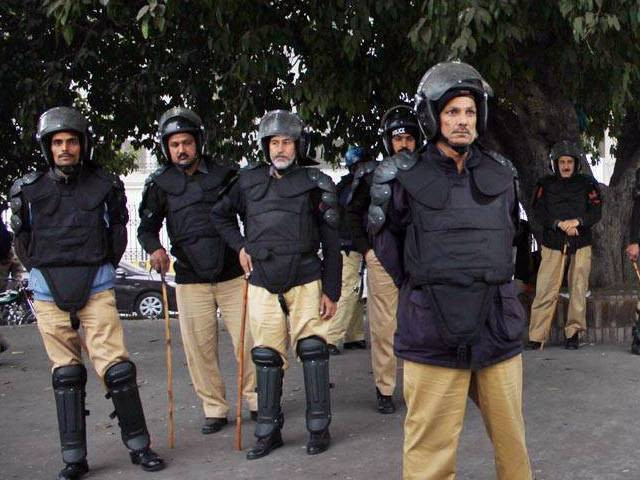
The failure to the bridge communication and coordination gap between the police and public can be gauged from the fact that only 21 people provided information on suspected criminals from the outset till November 26, 2016. There were no cases in the City and Cantonment divisions in which the public shared information with police. In the Civil Lines division, only eight such cases were reported, two in Iqbal Town, three in Saddar division and eight in Model Town division.
Other community policing initiatives were launched before the Awami Tohaffaz Committees, such as the Citizen Police Liaison Committee Lahore, but they never managed to gain momentum and eventually fell by the wayside.
Capital City Police Officer Amin Wains, when posted as regional police officer Multan in November 2013, introduced a model of community policing in Khanewal district at the union council (UC) level. It was implemented in all the 96 UCs of 18 police stations across the area. The community not only helped fight crime, but provided infrastructure to the police worth more than Rs15 million. The model was later replicated in the three districts of Multan, Vehari and Lodhran.
Wains was posted as CCPO Lahore in 2014. Inspired by the success of the Khanewal model, he started the Awami Tohaffaz Committees. They would be formed at police stations and consist of “honorable” or influential residents of their respective areas.
Huge gatherings and meetings were held in which senior police officers, including the CCPO himself, participated. At the initial stage, efforts to implement the idea were accelerated, but the project went into cold storage as time went on.
According to police records, Mujahid Butt is a member of the Awami Tohaffaz Committees. However, when contacted, he expresses complete ignorance towards being included in any such project. He stresses that he was never called by the police to hold any such meetings. Butt adds he does not even know the name of the SHO and is certain that the officer have no idea who he is either.
The ‘committee member’ says he has been working as a volunteer at Muharram processions since childhood and says police only contact him at that time.
Afzal, another member according to the police record, expresses similar ignorance over his role. The man says he is only a member of the Shia-Sunni Peace Committee.
Muhammad Tufail, a moharrar of a model police station, says meetings were conducted at the beginning and membership forms were distributed. The documents were later sent to the CCPO office to make membership cards, but never returned. “These committees are totally dysfunctional. At the beginning, senior Lahore policemen took interest and things moved along at a very fast pace. Eventually, everyone lost interest.”
When asked SSP Rana Ayyaz Salim, who was the Khanewal DPO at the time the initiative launched, points towards the CPLC in Karachi and says that has come into being through a process of evolution. The officer has also served in the port city. He continues that the participation of the people is key for community policing, adding that the CPLC in Karachi started through public initiatives.
“The business community was disturbed by the rise in kidnappings.” He highlights that CPLC has been working in Karachi for two decades, but cannot be replicated in other parts of Sindh. The SSP cites the Khanewal UC-Beat system, CPLC Faisalabad, CPLC Sargodha and Mian Jees, a community policing project in Sheikhupura, and Citizen Police Coordination Committees in Islamabad as successful initiatives in Punjab. Salim was SSP Investigations Lahore when police public peace committees came into existence.
A senior Lahore policeman, who also served as an SP in Karachi, says the crime and security situation of Lahore and Karachi are different and that is the reason CPLC was successful in the latter city. He adds that the volume of crime in the port city made its people realise that the police cannot succeed on its own. The officer says Lahore, in comparison, is more peaceful and therefore its people lacked the same sense of urgency.
Centre for Peace and Development Initiatives (CPDI) Research and Development Manager Muhammad Bilal Saeed tells The Express Tribune rather frankly that no community policing initiative in Pakistan has checked all the boxes. Saeed has also authored Community Policing in Pakistan; An Assessment and A Handbook to Community Policing. He points out that there are three fundamental constituents; citizen engagement, proactive problem solving and organisational evaluation. “Police is not an autonomous department, but a coercive, authoritative organisation that acts as a tool of the political government. It is not a public service department at all. Engagement with citizens requires a trust between the public and police,” he underlines. “The public cannot trust a force with a tainted image and which has no transparency or accountability. It discriminates between the rich and poor.” He adds that that the police’s superiors have ordered the force to distance itself from the public as fear and pressure cannot be exerted if the gap is bridged. Saeed says there is also always reactive interaction between the public and the police. “In our system of policing, public interacts with the police either as complainants or victims, while community policing seeks proactive problem solving.”
When asked about legislation, he says there is a need for laws to make community policing mandatory. “When there is no legislation; structure, rules, regulations and organisation evaluation, community policing cannot be defined.”
He also believes community policing is the only way to cope with terrorism and crime in a country where a police force of over 0.6 million individuals across four provinces has failed. CCPO Amin Wains tells The Express Tribune that Awami Tahaffaz Committees are functional and performing their duties efficiently. He says authorities are introducing many other initiatives to promote community policing.
Wains adds there is an “open-door policy” and anyone can see all officers, even the CCPO, without a reference.
Published in The Express Tribune, December 28th, 2016.



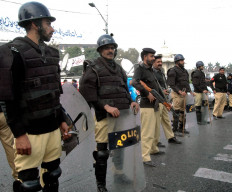



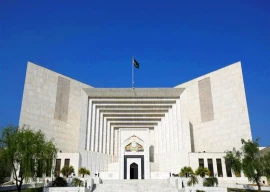
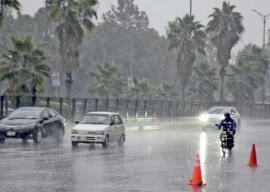


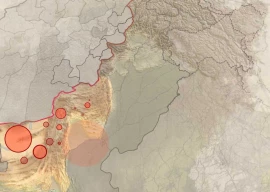





COMMENTS
Comments are moderated and generally will be posted if they are on-topic and not abusive.
For more information, please see our Comments FAQ